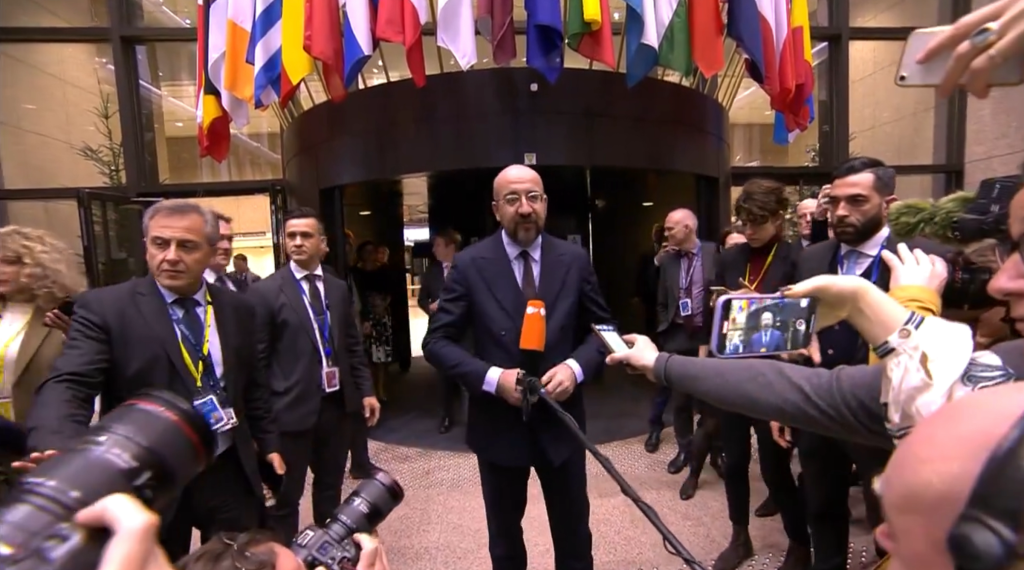
AGREEMENT ON NEW RULES TO SAFEGUARD PRESS FREEDOM, MEDIA PLURALISM AND EDITORIAL INDEPENDENCE IN THE EU
The Council reached a provisional agreement with the European Parliament on a new law to safeguard press freedom, media pluralism and editorial independence in the EU.
The European Press Freedom Act (EMFA) will establish a common framework for media services in the EU internal market and introduce measures aimed at protecting journalists and media providers from political interference, while making it easier for them to operate across internal EU borders. The new rules will guarantee the right of citizens to access free and pluralistic information and define the responsibility of Member States to provide the right conditions and framework to protect it.
GROWING THREAT TO PRESS FREEDOM
The proposed regulation responds to growing concerns in the EU about the politicization of the media and lack of transparency in media ownership and in the allocation of state advertising funds to media service providers. It seeks to establish safeguards to combat political interference in the editorial decisions of public and private service media providers, protect journalists and their sources, and ensure media freedom and pluralism.
A NEW MEDIA SERVICES BOARD
The EMFA builds on the provisions of the 2018 Audiovisual Media Services Directive (AVMSD) and expands its scope to include radio and the press. In particular, it introduces an independent European board for media services (“the Board”) to replace the regulators’ group (ERGA) established under the AVMSD. The Board will be composed of national media authorities and will advise and support the Commission in promoting the consistent application of key provisions of the new EMFA and the AVMSD. in all member states, including by providing opinions and assisting the Commission in producing guidelines.
ELEMENTS OF THE COMPROMISE
The compromise text provisionally agreed between the co-legislators maintains the ambition and objectives of the Commission’s proposal, while ensuring that the new law is consistent with existing EU legislation, respects national competences in this area, and strikes the right balance between necessary harmonization and respect for national differences.
In particular, the interim agreement:
* clarifies the responsibility of member states to ensure the plurality, independence and proper functioning of public media providers operating within their borders
* establishes the obligation of member states to ensure the effective protection of journalists and media providers in the exercise of their professional activity
* prohibits member states from using coercive measures to obtain information about journalists’ confidential sources or communications except in specific cases
* broadens the scope of transparency requirements, both for transparency of ownership which is proposed to apply to all media service providers and for transparency of state advertising where the possibility of national advertising exemptions for small entities are significantly reduced
* provides clearer rules on the relationship between large online platform providers (VLOPs) and media service providers that comply with regulatory or self-regulatory requirements. editorial control regimes and journalistic standards in the member states, with the aim of ensuring that content provided by media service providers is treated with special care
* allows media service providers to respond within 24 hours, or sooner in emergency cases, if a VLOP decides to remove its content from the site. grounds of incompatibility with its terms and conditions.
The agreement with Parliament determines the scope of the Board in its advisory role and strengthens its independence. It also introduces the possibility for the Board to establish a steering group, as well as to consult media representatives< /span> on issues outside the scope of the audiovisual media sector.
Finally, member states may adopt stricter or more detailed rules than those set out in the relevant parts of the EMFA.
NEXT STEPS
Today’s provisional agreement must be endorsed by the Council and the Parliament once the text has been finalized at a technical level. It will then be formally adopted by both institutions in spring 2024. Negotiations between the two co-legislators started on October 19, 2023 and conclude at political level with today’s agreement.
This news was originally published in Aquí Europa.



